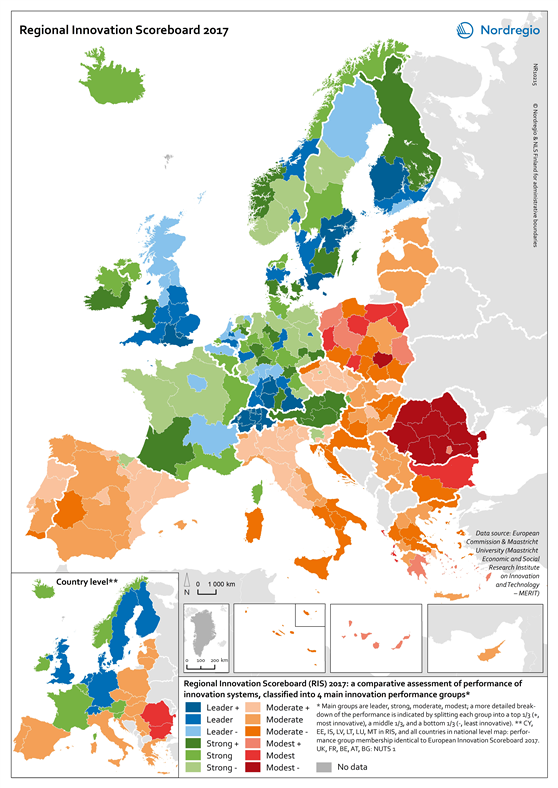This map shows the regional innovation scoreboard (RIS) in the regions of the European Union (EU), Norway, Iceland and Switzerland in 2017. The small map shows the innovation scoreboard at a national level. The index shows the performance of innovation systems, classified into four main performance groups (leader, strong, moderate and modest).
The different colours stand for the four performance groups. The shading is a breakdown of performance for each group from the most innovative (dark shade) to the least innovative (light shade). The blue tones represent the leader group. The green tones represent the strong group. The orange tones represent the moderate group. The red tones represent the modest group. The grey colour indicates no data.
With a long tradition of supporting innovation behind them, the Nordic countries have always been pacesetters when it comes to innovation-based development, topping the rankings of the most innovative economies in the EU. The Nordic countries (Iceland and Norway excepted) together with Switzerland, the Netherlands, the United Kingdom and Germany top the RIS ranking, demonstrating a high level of innovation performance. At the NUTS 2 level, all Nordic countries are represented by regions of two types i.e. innovation leader and strong innovator.
As innovation leaders, Nordic regions perform well on all indicators, displaying a particularly high level of performance in the framework conditions group (e.g. population having completed tertiary education and lifelong learning), innovation activities (e.g. public-private co-publications) and investment (e.g. R&D expenditures in the business sector). As of 2017, Stockholm, Östra Mellansverige and Sydsverige (Sweden), Hovedstaden (Denmark) and Länsi Suomi (Finland) are rated ”innovation leader +”, the most innovative regions in the Nordics.

